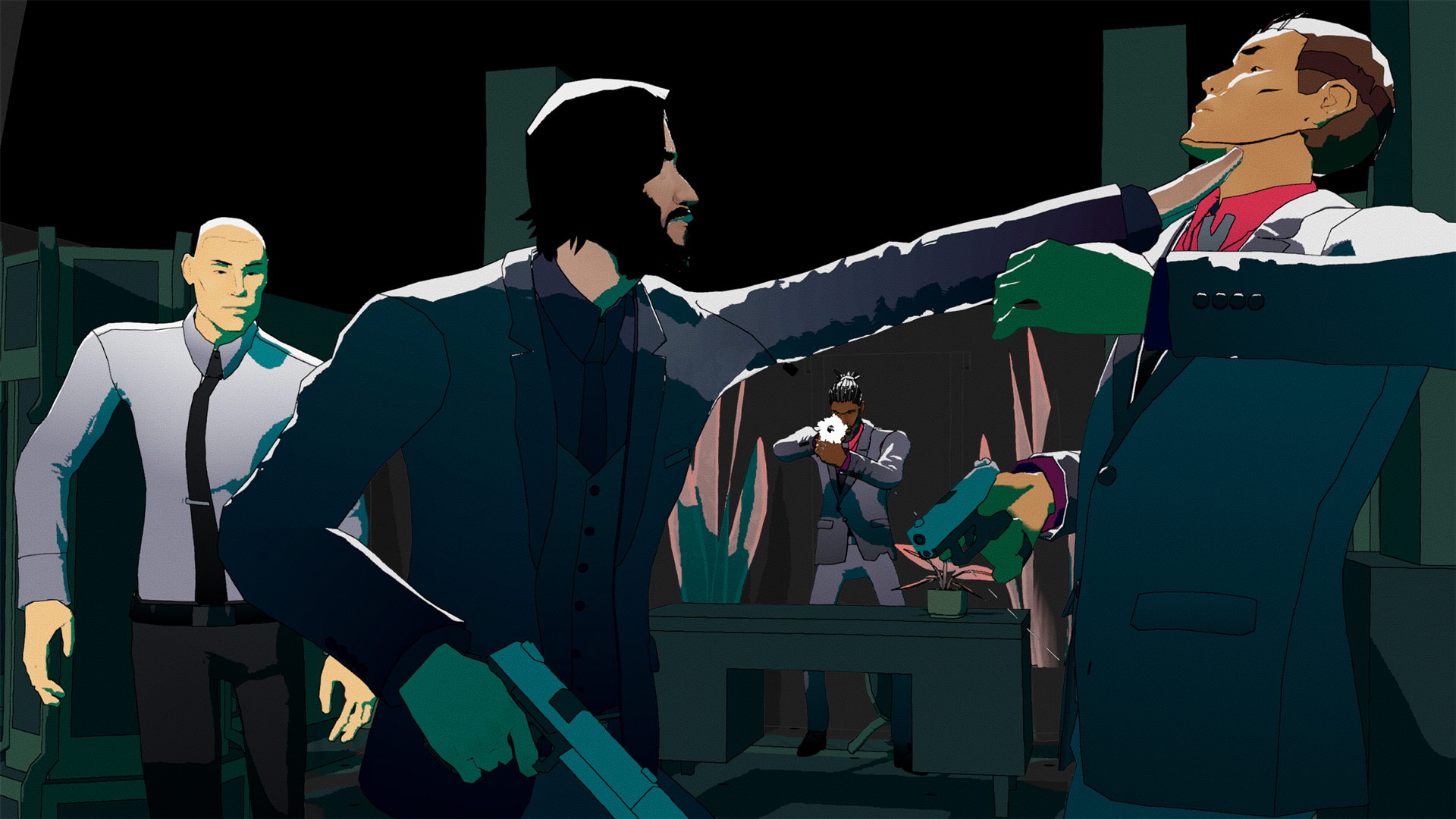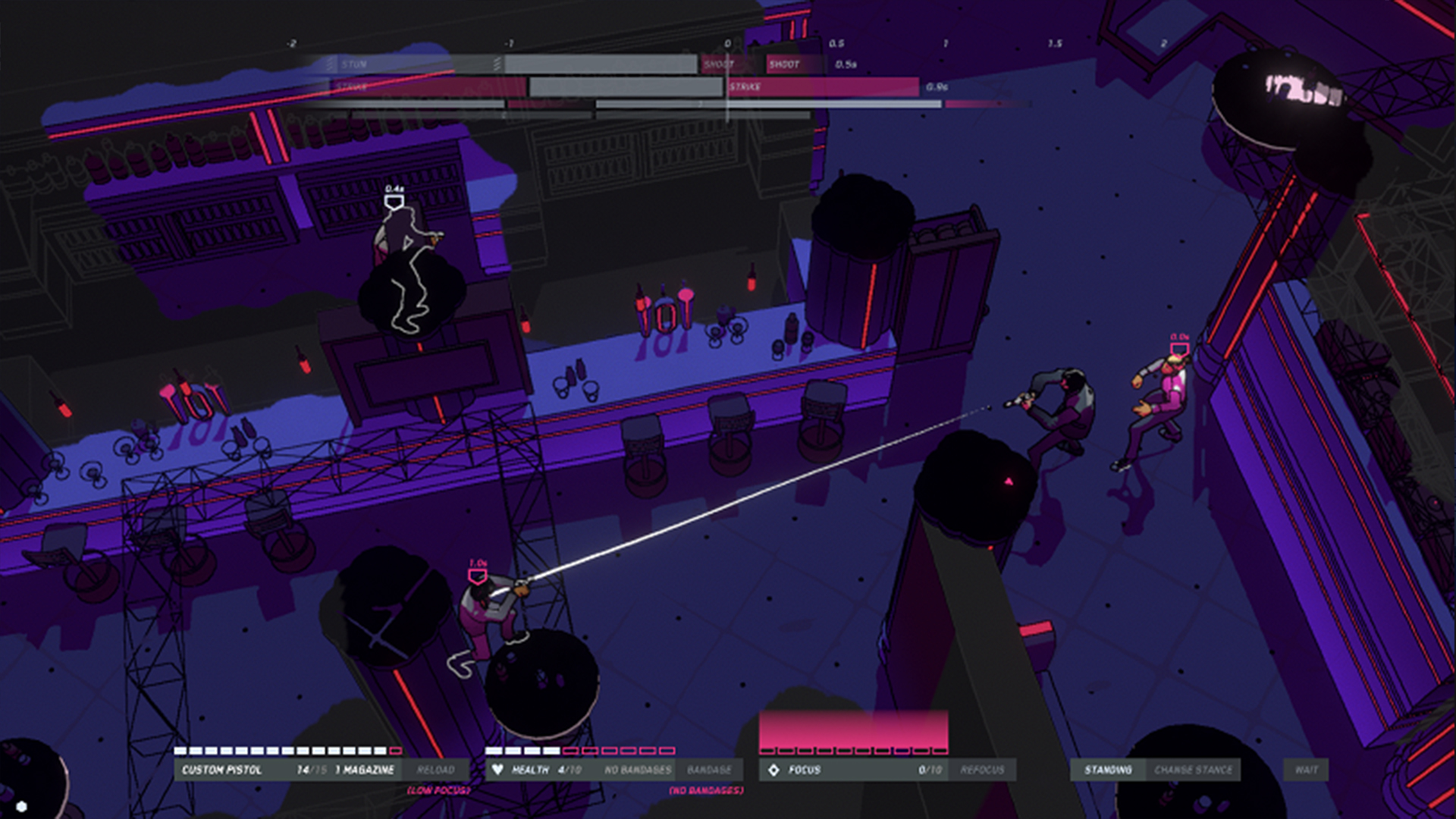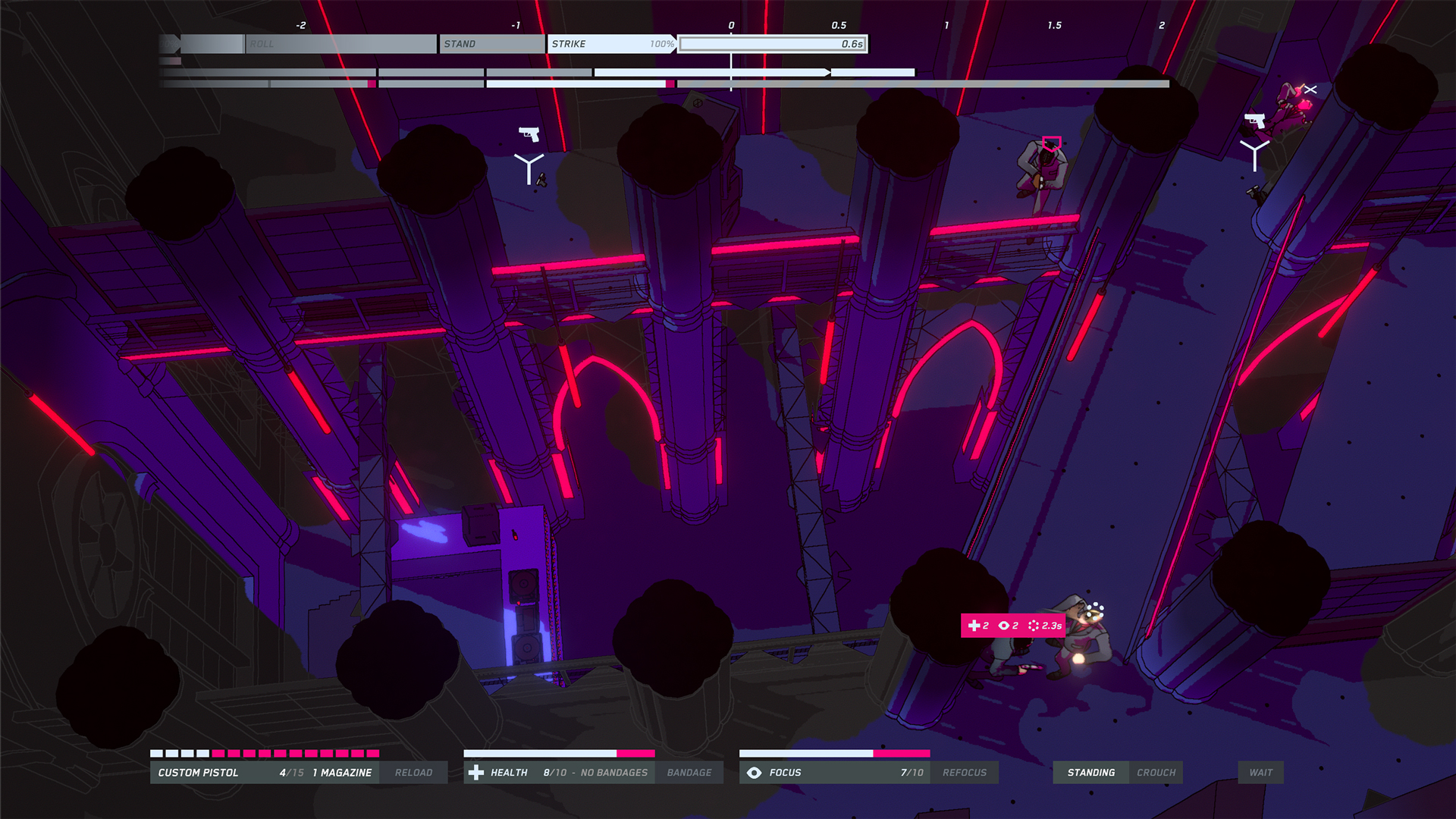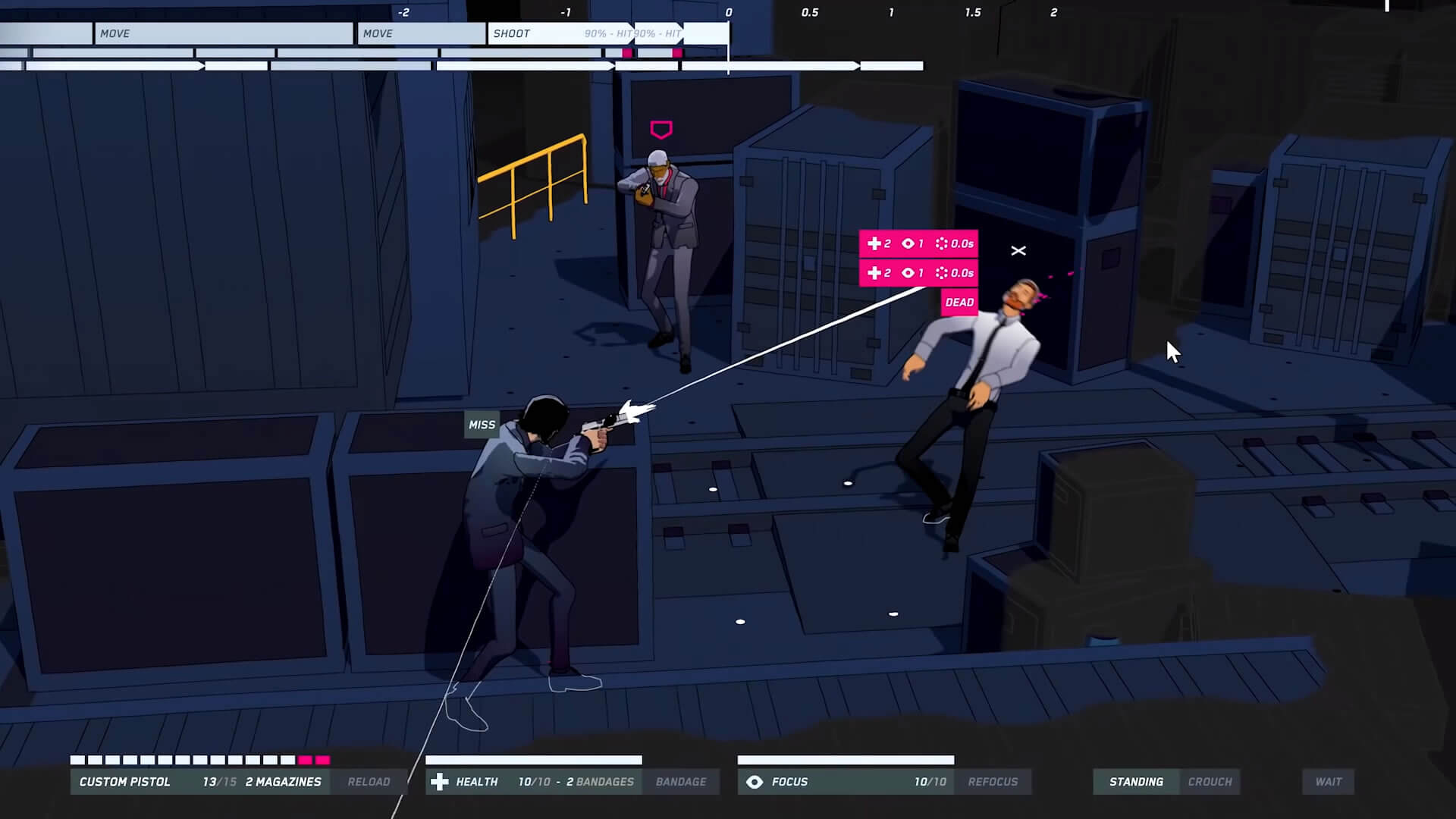John Wick Hex shows the true benefit of collaboration between movie and video game studios on popular licenses
John Wick Hex game director Mike Bithell reflects on how the makeup of Hollywood boardrooms is changing to the benefit of video games

John Wick Hex isn't the first licensed game Mike Bithell has worked on. It's just the first good one. "Basically, game devs of a certain age, we all worked on a SpongeBob game," he tells the audience at Yorkshire Games Festival. "It's one of those unifying truths."
Before the breakout success of Thomas Was Alone allowed Bithell to set up a full-time indie studio, he had an unenviable window into the world of adaptations. Licensees would sometimes offer studios just nine months in which to throw together something resembling a workable video game.
"It's not fun," he says. "It always comes down to a lack of respect, that you're being asked to make something bad. And everyone knows it's bad upfront: there's no-one going into those cheap, quick games thinking, 'This is going to redefine the genre.'"
In the movie business, especially, spin-off games were treated like an extension of merchandising, rather than opportunities to expand cinematic universes in meaningful fashion.
"You're essentially a lunch box," as Bithell puts it. "Think about how difficult it would be to get Steven Spielberg's sign-off on every E.T. toy. It's something where you're kept at arm's length, usually."
Embracing authenticity

Which is why it was such a surprise for Bithell to find himself sharing a room with John Wick's series director, Chad Stahelski, while the latter was in the process of editing John Wick 3. The two would trade ideas as Bithell was developing his real-time strategy game spinoff, John Wick Hex. In Stahelski's case, this trading of ideas would mainly be pointing out where the game sucked. It's down to him that John Wick: Hex has a fog of war mechanic, as Stahelski helpfully noted that Keanu Reeves can't see through walls.
Why are developers only now getting such unrivalled access to the movie industry? Put simply, it's because there's finally an audience for the kind of authentic, collaborative adaptations that John Wick Hex exemplifies.
Sign up to the GamesRadar+ Newsletter
Weekly digests, tales from the communities you love, and more
"In my first meeting with [production company and John Wick distributor] Lionsgate, they said, 'We want to be making GoldenEye,'" Bithell recalls. "That's a high bar, but the objective is now to make good games. With that respect comes bigger budgets, more time, and reaching out to developers."
Lionsgate approached Bithell to make something less obvious than the Max Payne clone you might dream up while watching John Wick. "They're a company that's looking for interesting, weird stuff," Bithell says. "And Good Shepherd, the publisher, want to make stuff that's maybe a bit pretentious. I'm sure they wouldn't mind me saying that."

"If you say that John Wick should stand on the spot while people shoot at him, I am happy to drop this"
With that care comes close attention. A few months into John Wick Hex's development, Bithell presented a prototype to a conference room filled with Hollywood executives. "It's exactly what you imagine," he says. "Lots of weird glass walls for no apparent reason, lots of men in suits looking quite stern but also cool and zany."
The most important suit in the room was Jason Constantine, the man in charge of the entire John Wick franchise at Lionsgate. Unfortunately, he was also the man asking: "Why does John Wick keep waiting while people shoot at him?"
Bithell patiently explained that Hex was a turn-based strategy game. You know, like chess. "Sure," said Constantine. "But isn't the whole thing about John Wick that he's always moving?"
Bithell booted up YouTube, and typed 'XCOM' into the search bar. Before long, he was losing the room. "Mike, we trust you," Constantine interrupted. "If you say that John Wick should stand on the spot while people shoot at him, I am happy to drop this."
It was the kind of trust that had been missing from the licensed projects Bithell had worked on in the past. A mutual respect that would enable his studio to build a worthy John Wick game – one that complemented its inspiration, independent yet interlinked.

It was also the cruelest thing Constantine could have said. "I spent an eight hour flight home trying to work out how the hell I was going to save the project," Bithell says.
Ultimately, the prototype's turn-based system was replaced with a timeline that could be regularly paused. Every action and its duration became visible along the top of the screen – each gunshot, shove, and reload. It was as if the player was Chad Stahelski, fine-tuning a fight scene in his editing suite, only without the nagging questions from the nearby game developer at his laptop.
Even now, there's a chance that Stahelski believes fog of war, a beloved staple of the RTS genre, was invented for John Wick Hex, and Bithell is in no hurry to correct him. "I've seen him talk about it since then, and he was giving me credit," says the developer. "I'm not telling him. Please don't tell Chad, he's very proud."
It turns out mutual trust still leaves room for a few white lies.
From release date to potential storylines, here's all the hot John Wick 4 gossip that we know so far
Jeremy is a freelance editor and writer with a decade’s experience across publications like GamesRadar, Rock Paper Shotgun, PC Gamer and Edge. He specialises in features and interviews, and gets a special kick out of meeting the word count exactly. He missed the golden age of magazines, so is making up for lost time while maintaining a healthy modern guilt over the paper waste. Jeremy was once told off by the director of Dishonored 2 for not having played Dishonored 2, an error he has since corrected.



